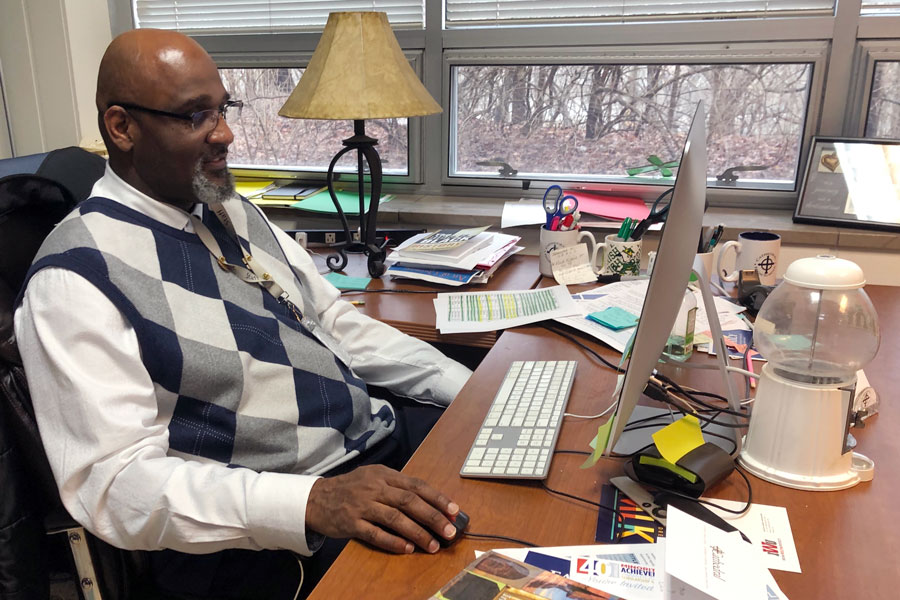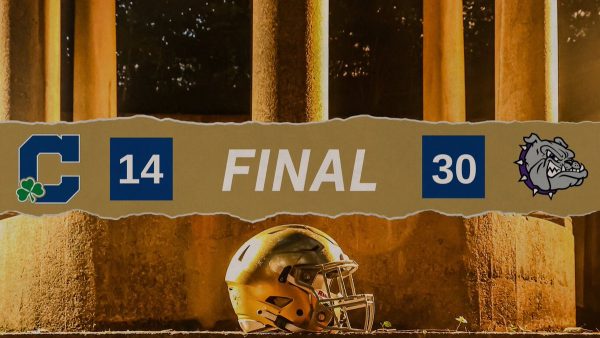Been suspended? Common App doesn’t want to know
Students no longer will be asked to self-report infractions
Mr. Ken Barlow ’82 provided information about the Jan. 26 meeting of the Black Student Union and Latino Student Union.
Common App, which students use to apply to most colleges, has made a significant change to its application process.
Since 2006, students have had to self-report prior disciplinary actions whether that be detentions, suspensions or expulsions at the request of 900 colleges and universities. Now, Common App has removed that section because, according to commonapp.org, “We want our application to allow students to highlight their full potential. Requiring students to disclose disciplinary actions has a clear and profound adverse impact. Removing this question is the first step in a longer process to make college admissions more equitable.”
Common App data found that Black applicants and other students of color self-reported their disciplinary records at twice the rate of their white counterparts, and students who do report are less likely to apply to college, according to Common App.
Vice President for Community Relations and Diversity Mr. Ken Barlow ‘82 said, “I think it will benefit everybody, because if you’re having an issue that people aren’t self-reporting, then you’re really not capturing the data you really want to capture to make a fair assessment of who is admitted and who’s not admitted.
“So I think taking it off would eliminate that disparity that you guys have shared that the majority population of students aren’t self-reporting, and if the minority population are or students of color are reporting then you’re receiving applications that aren’t showing you a clear picture. Taking it off would be helpful or there needs to be a system to really background check further.”
He said he agrees that if a college representative sees that more of the Black applicants have their disciplinary history cited than do the white applicants due to them not self-reporting, it can add to the stereotype of people of color.
Barlow said, “It’s kind of like the news, so you have to ask yourself, ‘The news that we watch, is it balanced?’ If we‘re being fed information all the time that the Latino people are the bad people or the Black people are the bad people, then we formulate a stereotype or we formulate an implicit bias that we don’t even recognize sometimes,” Barlow said.
He added that based on the data that Black students self-report more than their white peers, “You can develop a stereotype saying ‘Oh, it’s just those (Black) kids that get in trouble.”
School counselor and director or counseling Ms. Gretchen Watko ‘00 said she believes that Common App made a good decision to make this change. “Common App learned that the data showed a disproportionate amount of schools not disclosing discipline history. So you have a rising number of disadvantaged applicants not completing the application for fear of their discipline history negatively impacting their opportunities when the majority of secondary schools aren’t disclosing that information anyway,” Watko said.
She said that it’s difficult to tell right now if the change will significantly alter students’ chances of getting accepted. Watko said, ‘This has been a strange year so far. We are being asked if more students will have more opportunities due to more schools going test optional. We haven’t seen that unfold yet. It will be interesting to see how this change to the Common App plays out once the question is removed.
“I trust that Common App will continue to follow data, and it is my hope that the data shows more disadvantaged students completing the application process and that it gets us closer to closing in on and addressing the opportunity gaps that currently exist.”
When asked if he would like to see any more changes of the Common App that would promote inclusivity and diversity, Barlow said, “Not only inclusivity and diversity, (but) a big word that I like to use is equity. Equity is being intentional to make sure that everyone is being treated on the same field.”

Ava Amos is a senior and is the co-editor-in-chief of the Megaphone staff. She is a member of the varsity softball team and enjoys volunteering with the...







